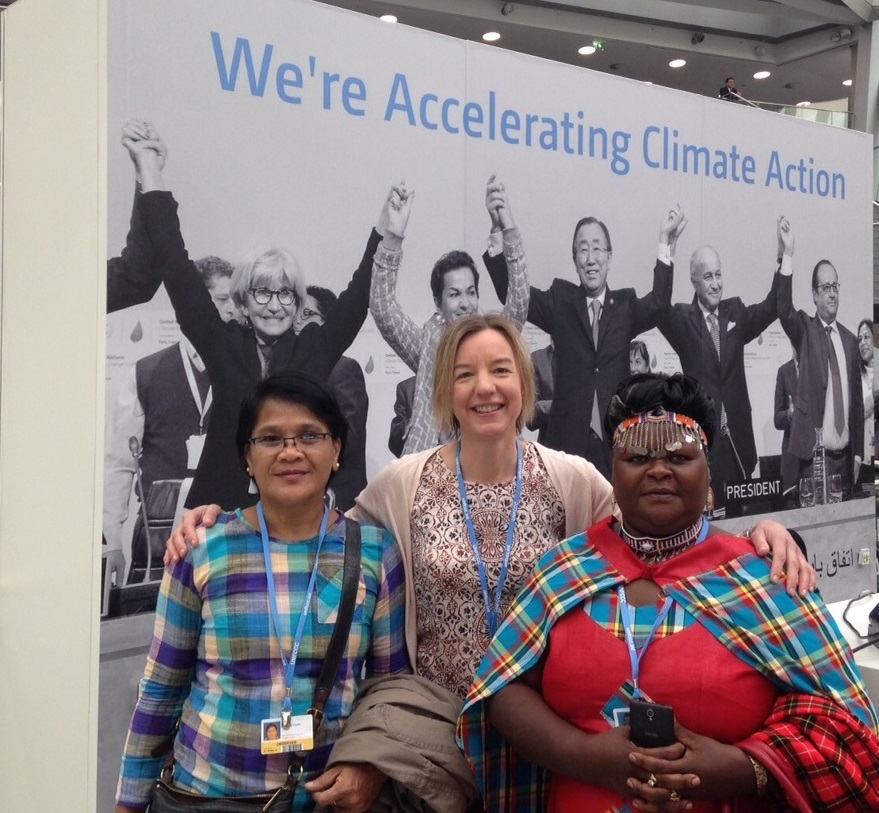Josephine Castillo, a grassroots community leader and organiser with DAMPA Federation, the Philippines and Rosemary Wambua, Chairperson of the Kitui Women Poverty Eradication Group and the Kenya Climate Justice Women Champions (KCJWC) coordinator in Kitui county (Kenya) highlighted the need for the inclusion of grassroots women in climate policy making during the second workshop of the Lima Work Programme on Gender (LWPG) at the latest round of UN climate change negotiations in Bonn. The Mary Robinson Foundation – Climate Justice supported both women’s participation in the in-session workshop of the LWPG. The work programme aims to advance implementation of gender-responsive climate policies and mandates across all areas of the negotiations. This is the final mandated workshop of the programme and it is considering all recommendations put forward today, Thursday 19 May.
The Foundation, with the co-operation of the UNFCCC Secretariat, enabled the participation of grassroots women in the workshop because it believes grassroots women should be recognised as agents of change in the development of local and national responses to climate change and empowered to act upon that agency. The workshop focused on gender responsive climate policy with an emphasis on adaption and capacity building, and training for delegates on gender issues.
Josephine spoke about how DAMPA has organised community based initiatives to build resilience to climate change in Leyte, an island in Visayas, the Philippines. DAMPA has helped to build women farmer’s capacity to negotiate with government agencies as well as providing training in livestock care which has helped to vastly improve food security. Community saving schemes have helped to both empower and liberate women economically.
‘We grassroots women know the solutions, we are doing the work on the ground – we need to be recognised and heard more at conferences like this as agents for change and partners in building resilient communities & countries’ Josephine Castillo told a crowded room yesterday during her presentation .
Rosemary explained how drought coupled with the recent unpredictability of the seasons has resulted in a threat to food security in her region. She explained how the KCJWC have accessed and introduced drought resistant crops including cassava and greengrams and provided training for the construction of energy saving stoves ‘maenbeleo jiko’.
Rosemary believes that she and the grassroots women she works with “know what the problems are in our local area and in many cases have the solutions. Policies should be made based on our needs and knowledge and not imposed on us from above. Grassroots women have ideas and want to be heard.”
Related Links


